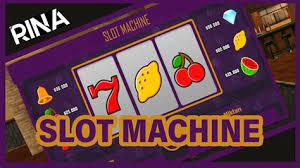Casinos have long held a captivating allure, drawing in millions of visitors each year with the promise of excitement, entertainment, and the possibility of life-changing winnings. From the opulent casinos of Las Vegas and Macau to the more intimate local establishments, the world of ufo 777 is vast and varied. This article delves into the history, operation, and cultural significance of casinos.
A Brief History
The concept of gambling dates back thousands of years, with evidence of gaming activities in ancient civilizations such as Egypt, China, and Rome. However, the modern casino as we know it began to take shape in the 17th century. The first recognized gambling house was the Ridotto in Venice, established in 1638 to provide controlled gambling during the carnival season.
The 19th century saw the rise of some of Europe’s most famous casinos, such as the Casino de Monte-Carlo in Monaco. In the United States, gambling began to flourish in the saloons of the Old West before becoming more regulated and centralized with the opening of the Flamingo Hotel in Las Vegas by Bugsy Siegel in 1946. Las Vegas soon became synonymous with casino gambling, a reputation it retains to this day.
How Casinos Operate
Casinos operate on the principle of providing a variety of games of chance, where patrons can gamble money for the possibility of winning more. The house always maintains a statistical edge, known as the house advantage or house edge, which ensures profitability over the long term. Common games found in casinos include:
- Slot Machines: These are the most popular and profitable games in any casino. Players insert coins or tokens and spin the reels, hoping to line up matching symbols to win.
- Table Games: These include blackjack, poker, roulette, baccarat, and craps. Each game has its own set of rules and strategies, and many require a combination of luck and skill.
- Electronic Games: In addition to traditional slot machines, many casinos offer electronic versions of table games and other gaming machines.
Casinos also employ a variety of techniques to keep patrons engaged and spending money. These include offering complimentary drinks, food, and accommodations, creating an atmosphere of luxury and excitement, and employing sophisticated surveillance systems to ensure security and fair play.
Economic and Social Impact
Casinos can have a significant economic impact on their local communities. They create jobs, generate tax revenue, and attract tourists, which can stimulate further economic activity. For instance, Las Vegas and Macau have built entire economies around their casino industries, becoming major tourist destinations in the process.
However, the presence of casinos is not without controversy. Critics argue that they can lead to social problems such as gambling addiction, crime, and economic inequality. The debate over the benefits and drawbacks of casinos continues in many regions, particularly when new casino projects are proposed.
The Future of Casinos
The casino industry is continually evolving, driven by advancements in technology and changing consumer preferences. Online gambling has seen explosive growth, allowing people to enjoy casino games from the comfort of their homes. Virtual reality (VR) and augmented reality (AR) are also beginning to make their mark, offering immersive gaming experiences that blur the line between the virtual and real worlds.
Moreover, casinos are increasingly diversifying their offerings to attract a broader audience. Many now feature luxury hotels, fine dining, entertainment shows, and shopping malls, transforming from mere gambling venues into comprehensive entertainment complexes.
Conclusion
Casinos remain a fascinating and dynamic aspect of the entertainment industry. They combine the thrill of chance with the allure of potential fortune, all set within environments designed to captivate and delight. Whether viewed as economic engines or sources of social concern, there is no denying the profound impact casinos have on culture and society. As the industry continues to innovate and adapt, the casino experience is likely to remain an enduring and popular form of entertainment for years to come.


